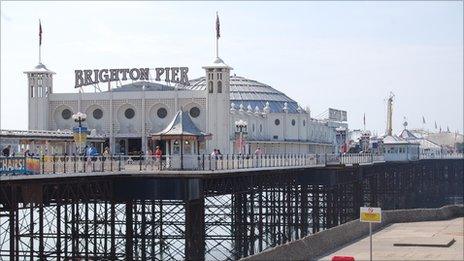South Shields exhibition celebrates seaside holidays
- Published
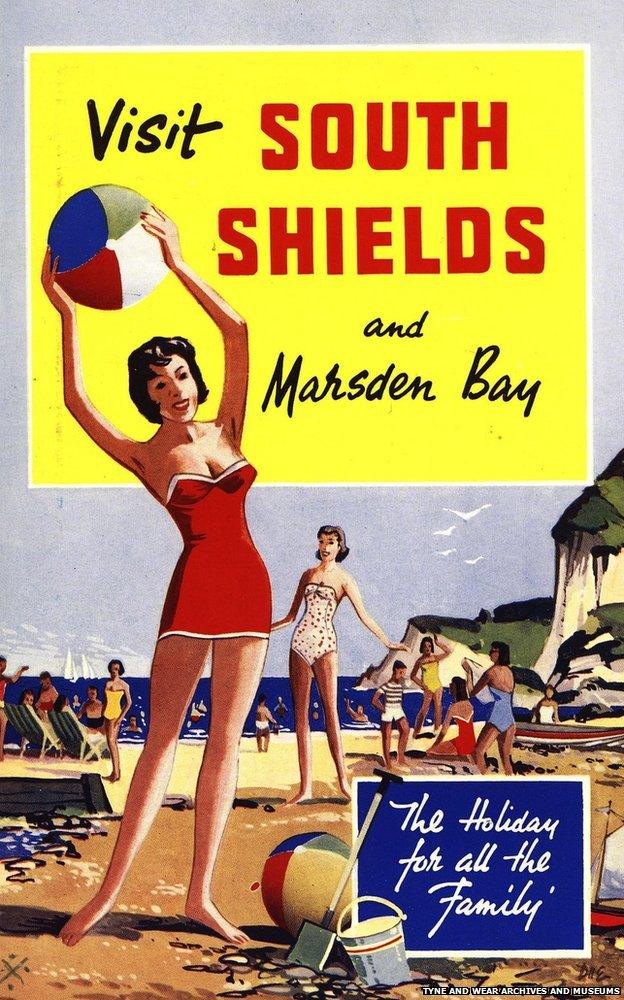
This colourful holiday brochure advocating the delights of South Tyneside dates back to 1952
Before the advent of affordable package holidays abroad, the promise of sun and sand meant a trip to the seaside was a great British institution. A new exhibition looks back to a time when puppet shows and donkey rides drew crowds from miles around.
"My mother would pack some sandwiches, and screw some dry tea and sugar into separate paper twists," recalled South Tyneside author James Kirkup in his book The Only Child: An Autobiography of Infancy.
"Wrapping cups, spoons, a jug and the second-best teapot in a tattered traycloth, we would set off for the sands.
"I would be wearing sandshoes and carrying a spade and bucket, and perhaps a little yacht, that always capsized at the slightest breath of wind, to sail in the pools… and now we could smell and hear the sea."
It's a scene that will be familiar to all who grew up enjoying the delights of holidays close to home, and now those days gone by are being recalled in a colourful and nostalgic exhibition at South Shields Museum.
Entitled Seaside Shields and opening on Saturday, external, it features photographs, posters and postcards from yesteryear as well as a number of vintage arcade amusement machines on loan from private collectors.
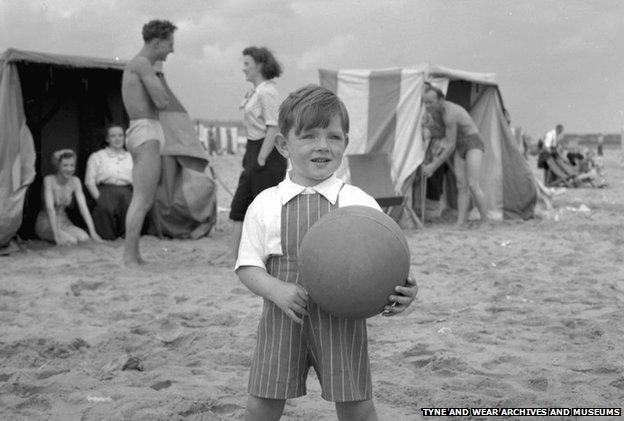
This smartly-dressed youngster was pictured on South Shields beach in August 1950
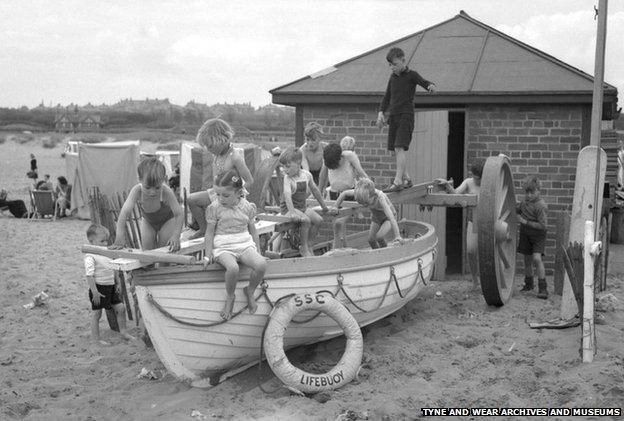
A fishing boat provided great fun for excited children
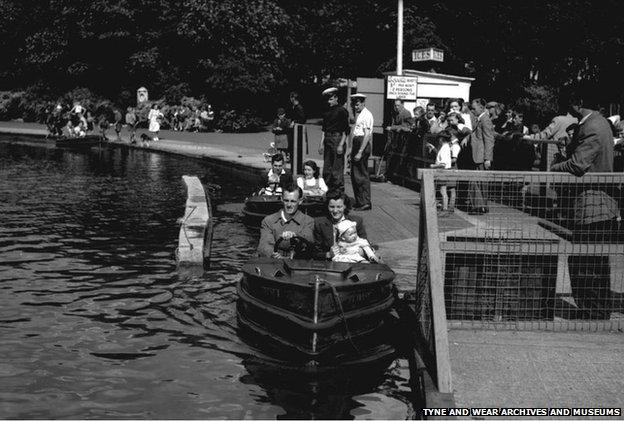
The Scooter Boat Lake at South Marine Park was a popular family attraction
"People have flocked to South Shields to enjoy its many seaside attractions since Victorian times," says curator Adam Bell, assistant keeper of social history at Tyne and Wear Archives and Museums.
"At first, a trip to the seaside was promoted for its health benefits.
"But as the 19th Century gave way to the 20th, the well-heeled and the well-to-do middle classes pursuing health cures were increasingly joined by working people and their families seeking a brief escape from the grimy monotony of heavy industry and cramped terraced streets.
"While the attractions of the beach were ever popular, seaside resorts offered much more in the way of entertainments, promising to amuse, entertain and excite."
A day at the seaside would not have been complete, Mr Bell says, "without penning a postcard to the folks at home" before the development of photography meant people could snap their own visual record of their time at the beach.
The British seaside holiday reached the peak of its popularity in the 1960s and 70s, but trouble was on the horizon.
The rise of cheap package trips to foreign climes quickly washed away decades of tradition, with many coastal towns today still struggling to recover.
But while the sun may have set on the heyday of the seaside holiday, for Mr Bell the memories still burn brightly, along with the "the smell of vinegar-drenched fish and chips filling the air and the screams of delight from youngsters enjoying the rides at the pleasure park".
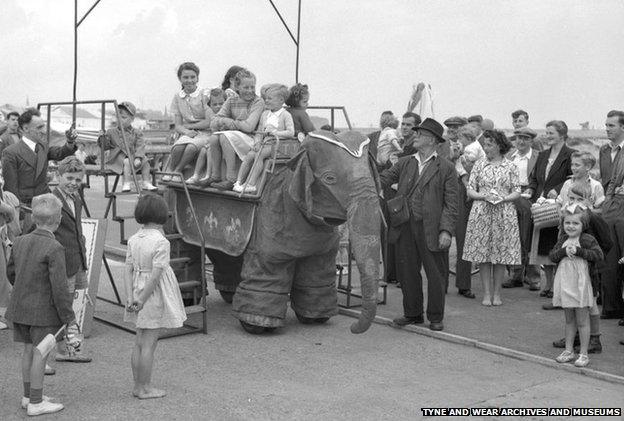
There were wide grins as youngsters hopped on a mechanical elephant in August 1950
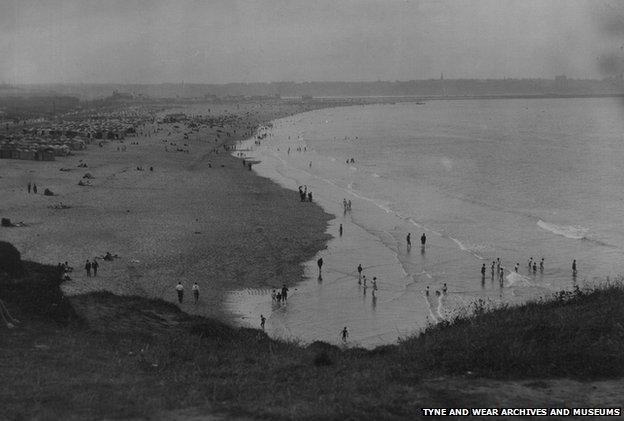
A view of the beach from Trow Rocks, South Shields, showed crowds gathered below
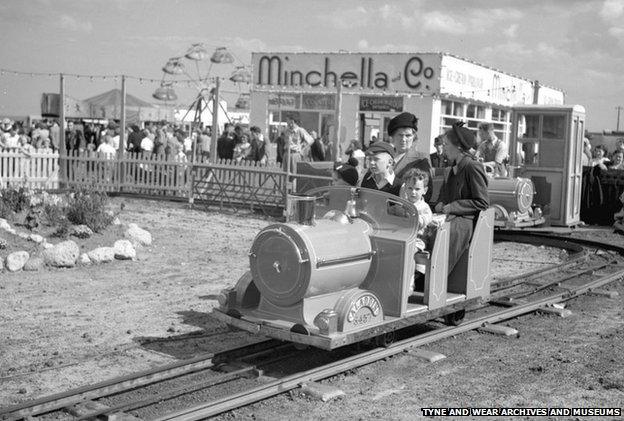
It was full steam ahead on the miniature railway ride
- Published28 September 2013
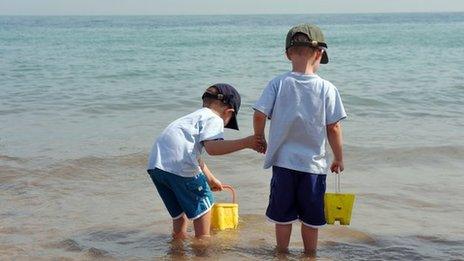
- Published5 August 2013
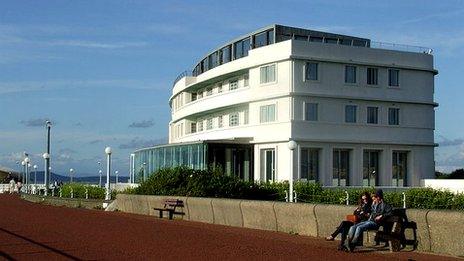
- Published19 August 2011
